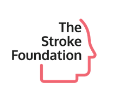A stroke is a life-altering event that brings with it a myriad of challenges, from physical limitations to emotional upheaval. As a stroke survivor, your journey towards recovery is a continuous process, requiring dedication, resilience, and support. One of the most critical aspects of this journey is medication adherence. Whether you’re a stroke survivor or a caregiver, understanding the importance of taking medications as prescribed is essential to ensure the best possible recovery and prevent future complications.
Why Medication Adherence Matters
After a stroke, your doctor may prescribe medications to manage a variety of factors, such as blood pressure, cholesterol levels, and clot prevention. These medications are not just temporary measures; they are vital to reducing the risk of a recurrent stroke and managing other health conditions that could impact your recovery.
Preventing Recurrence: The risk of having another stroke is significantly higher after experiencing one. Medications such as anticoagulants, antiplatelets, and antihypertensives play a crucial role in preventing blood clots, lowering blood pressure, and reducing cholesterol levels—all of which are major contributors to stroke risk.
Managing Underlying Conditions: Conditions like high blood pressure, diabetes, and high cholesterol are common among stroke survivors. If left unmanaged, these conditions can lead to further health complications, including another stroke. Adhering to your prescribed medication regimen helps keep these conditions under control, promoting better overall health.
Supporting Brain Recovery: After a stroke, the brain undergoes a period of recovery where it tries to rewire and adapt to the damage caused. Some medications can help support this process by improving blood flow to the brain, reducing inflammation, and protecting brain cells. This can enhance your cognitive function and aid in regaining physical abilities.
Barriers to Medication Adherence
Despite its importance, many stroke survivors and their caregivers struggle with medication adherence. Understanding the common barriers can help you find solutions to overcome them.
Complex Medication Regimens: Stroke survivors often have to take multiple medications, each with different dosages and schedules. This complexity can lead to confusion and missed doses.
Side Effects: Some medications may cause side effects that make them difficult to take consistently. It’s important to communicate with your healthcare provider if you experience any discomfort, as they may be able to adjust your medication or offer alternatives.
Cost: The financial burden of long-term medication can be overwhelming, particularly for those on fixed incomes. Discussing options like generic medications, patient assistance programs, or insurance coverage with your healthcare provider can help alleviate some of this burden.
Lack of Understanding: Some survivors may not fully understand the importance of their medications or may believe that once they start feeling better, they can stop taking them. Education is key in ensuring that both survivors and caregivers understand the critical role these medications play in recovery and long-term health.
Tips for Ensuring Medication Adherence
Maintaining a consistent medication routine can be challenging, but with the right strategies, it is achievable. Here are some tips to help you stay on track:
Create a Medication Schedule: Use a pill organizer, smartphone app, or calendar to keep track of your medications. Setting alarms or reminders can also be helpful.
Involve Caregivers: If you’re a caregiver, take an active role in managing your loved one’s medications. Ensure they are taking their medications correctly and at the right times.
Regular Check-Ins with Healthcare Providers: Keep in touch with your doctor to review your medications regularly. This can help address any side effects, interactions, or changes in your health that may require adjustments to your regimen.
Simplify When Possible: Ask your doctor if it’s possible to simplify your medication regimen. For example, some medications can be combined into a single pill, or dosages may be adjusted to reduce the number of times you need to take them daily.
Educate Yourself and Others: The more you know about your medications and their importance, the more likely you are to take them as prescribed. Encourage caregivers and family members to learn as well so they can support you.
Medication adherence is not only important for ensuring a smoother recovery, but also critical to reducing your risk of a future stroke. For caregivers, supporting a stroke survivor in this aspect of their recovery is one of the most impactful ways to contribute to their health and well-being. By prioritizing medication adherence, you’re not only reducing the risk of another stroke but also actively participating in the healing process.
Remember, the road to recovery is a marathon, not a sprint. If medication adherence is challenging for you, speak with your healthcare provider to find a routine that works best for you.





